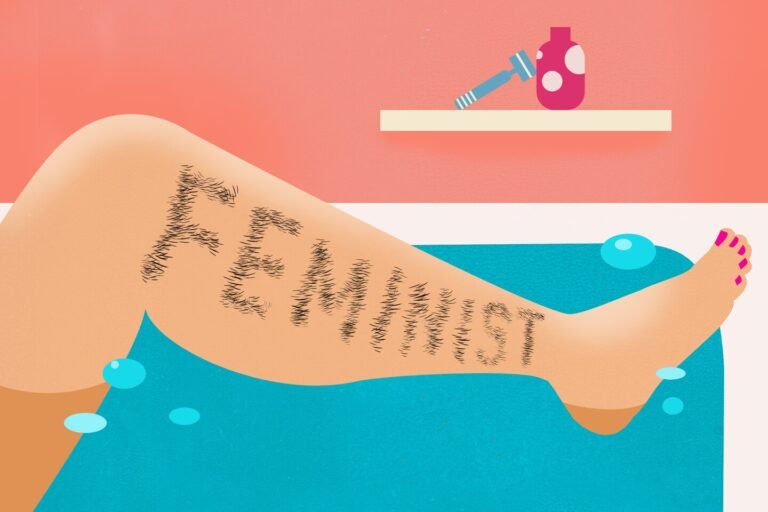
[ad_1]
“And just like that, she disappeared,” he would say.
I took this to heart when I was young — and was reminded of it recently when I read that Jennifer Lopez, after marrying Ben Affleck, changed her name to Jennifer Lynn Affleck.
Changing her name puts Affleck née Lopez among the vast majority of American brides. Surveys find that between just 11 percent and 16 percent keep their names. The rest choose to conform to a naming convention based on a literally medieval notion that wives are legally subordinate to their husbands.
Yet some claim that changing their names is in fact a feminist choice.
“Taking my husband’s name is a feminist act” is the actual headline of a 2021 essay, in which Kimberly Atkins Stohr argues: “The core of feminism is the idea that women ought to have agency over their own lives and make their own decisions based on what is right for them.”
Defenders of Affleck’s new name have taken a similar tack. “True feminism means each and every woman has the freedom to make her own choices, J-LO included,” tweeted one. A writer in the Irish magazine Image opined, “Feminism revolves around equality, and a woman’s freedom to make decisions as she sees fit.”
You get the idea. Feminism is about choice; therefore Affleck’s choice must be feminist.
No, sorry. It’s the opposite.
Every choice to conform to sexist social norms makes it harder for other women to choose otherwise. Every woman who has plastic surgery or Botox or gets her hair dyed or, yes, changes her name makes it harder for other women not to.
Some argue that what matters is how a woman feels, not what she does. “The non-feminist likely shaves because she feels that she has to for others,” explains one blogger, “while the feminist will shave because she wants to do it for herself.”
Goodness, no. The feminist knows that the reasons she wants to shave are deeply compromised — and that as long as men aren’t expected to do it, doing it for yourself is an illusion.
“Feminism gave women the freedom to choose what they want to do with their lives,” declares one columnist, “and they can choose whether they want to wear high heels or not.”
No again. Feminism isn’t a thing we did and now it’s done. Feminism is continually naming and combating the constraints imposed on us by a male-oriented society.
Sound like hard work? It is. I certainly haven’t always managed it.
At our wedding, I didn’t want to do anything as a bride that wasn’t expected of a groom — no bouquet toss, no engagement ring.
Even though I appreciated the way sharing a single name turns a couple into a family, I objected to the fact that no one expects the man to “make sacrifices” — as J-Lo described it in 2003 — to create that family. Very few men do. So I didn’t.
But still, as a feminist, I faltered many times on the way toward the aisle. I lost weight for my wedding, shaved my underarms, wore heels and lipstick and virginal white.
Guess what sort of choices those were. Sexist ones. Sure, I could say I looked good in white or I liked the feel of smooth armpits. But any excuse beyond “I gave in” would disrespect the women who do stand up to patriarchal traditions, downplay the enormous power of the forces arrayed against us, and disregard the potential harm created by my sexist choices.
Better to admit I came up short.
It happens — even to superstars. In the music video for her song “I Luh Ya Papí,” Affleck tries to champion female empowerment, if not feminism, with a metastory of making a video. Annoyed that her director’s ideas objectify women, Affleck dreams up a scenario that instead features scantily dressed, well-muscled men — and her own scantily dressed, super-toned self.
The result is a seriously mixed message. I don’t blame her for it. Affleck is navigating a powerfully sexist industry and culture. Just existing within these forces, much less fighting them, is exhausting.
In this context, a person might well opt to dress like the other girls in high school, capitalize on her looks if she can or stay home to raise the kids. If she decides Botox will help her feel better about herself in a culture that says aging is bad? I get it.
Sometimes we can’t push back or don’t want to. Sometimes we make the sexist choice. But in that case, we still have one real option as feminists: Call it what it is.
[ad_2]
Source link
